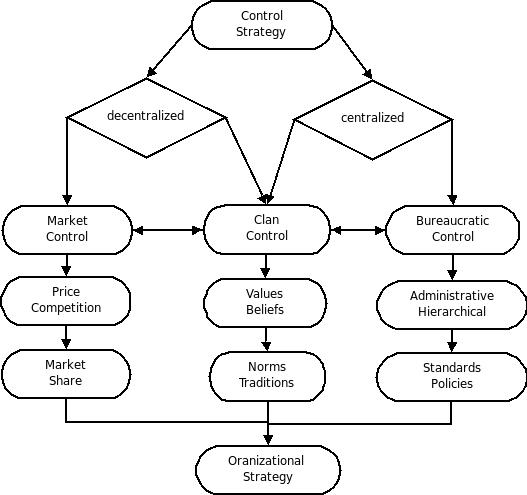Control theory (sociology) on:
[Wikipedia]
[Google]
[Amazon]
 Control theory in
Control theory in
.
*O'Grady, William. ''Crime in a Canadian Context''. 2011. Toronto: Oxford University press. Print.
*Henslin, James M. Sociology: A Down-To-Earth Approach. Nine ed. Boston: Allyn and Bacon, 2008. Print.
Control Theory
{{DEFAULTSORT:Control Theory (Sociology) Criminology Sociological theories Control (social and political)
 Control theory in
Control theory in sociology
Sociology is the scientific study of human society that focuses on society, human social behavior, patterns of Interpersonal ties, social relationships, social interaction, and aspects of culture associated with everyday life. The term sociol ...
is the idea that two control systems—inner controls and outer controls—work against our tendencies to deviate. Control theory can either be classified as centralized or decentralized. Decentralized control is considered market control. Centralized control is considered bureaucratic control. Some types of control such as clan
A clan is a group of people united by actual or perceived kinship
and descent. Even if lineage details are unknown, a clan may claim descent from a founding member or apical ancestor who serves as a symbol of the clan's unity. Many societie ...
control are considered to be a mixture of both decentralized and centralized control.
Decentralized control or market control is typically maintained through factors such as price
A price is the (usually not negative) quantity of payment or compensation expected, required, or given by one party to another in return for goods or services. In some situations, especially when the product is a service rather than a ph ...
, competition
Competition is a rivalry where two or more parties strive for a common goal which cannot be shared: where one's gain is the other's loss (an example of which is a zero-sum game). Competition can arise between entities such as organisms, indi ...
, or market share
Market share is the percentage of the total revenue or sales in a Market (economics), market that a company's business makes up. For example, if there are 50,000 units sold per year in a given industry, a company whose sales were 5,000 of those ...
. Centralized control such as bureaucratic control is typically maintained through administrative or hierarchical techniques such as creating standards or policies. An example of mixed control is clan control which has characteristics of both centralized and decentralized control. Mixed control or clan control is typically maintained by keeping a set of values and beliefs or norms and traditions.
Containment theory, as developed by Walter Reckless in 1973, states that behavior is caused not by outside stimuli, but by what a person wants most at any given time. According to the control theory, weaker containing social systems result in more deviant behavior.
Control theory stresses how weak bonds between the individual
An individual is one that exists as a distinct entity. Individuality (or self-hood) is the state or quality of living as an individual; particularly (in the case of humans) as a person unique from other people and possessing one's own needs or g ...
s and society
A society () is a group of individuals involved in persistent social interaction or a large social group sharing the same spatial or social territory, typically subject to the same political authority and dominant cultural expectations. ...
free people to deviate or go against the norms, or the people who have weak ties would engage in crime
In ordinary language, a crime is an unlawful act punishable by a State (polity), state or other authority. The term ''crime'' does not, in modern criminal law, have any simple and universally accepted definition,Farmer, Lindsay: "Crime, definiti ...
s so they could benefit, or gain something that is to their own interest. This is where strong bonds make deviance more costly. Deviant acts appear attractive to individuals but social bonds stop most people from committing the acts. Deviance is a result of extensive exposure to certain social situations where individuals develop behaviors that attract them to avoid conforming to social norms. Social bonds are used in control theory to help individuals from pursuing these attractive deviations.
According to Travis Hirschi, humans are selfish beings, who make decisions based on which choice will give the greatest benefit. A good example of control theory would be that people go to work
Work may refer to:
* Work (human activity), intentional activity people perform to support themselves, others, or the community
** Manual labour, physical work done by humans
** House work, housework, or homemaking
** Working animal, an ani ...
. Most people do not want to go to work, but they do, because they get paid, to obtain food, water, shelter, and clothing.
Hirschi (1969) identifies four elements of social bonds: attachment, commitment, involvement, and belief.
See also
* Social control theoryNotes
References
*Giddens, Anthony, Mitchell Duneier, Richard Appelbaum, and Deborah Carr. Introduction To Sociology. Seventh . New York City: W.W. Norton & Company, 2009. 182. Print. *Hamlin, John. "A Non-Causal Explanation: Containment Theory Walter C. Reckless." 2001. University of Minnesota, Web. 5 Mar 2010.External links
Control Theory
{{DEFAULTSORT:Control Theory (Sociology) Criminology Sociological theories Control (social and political)